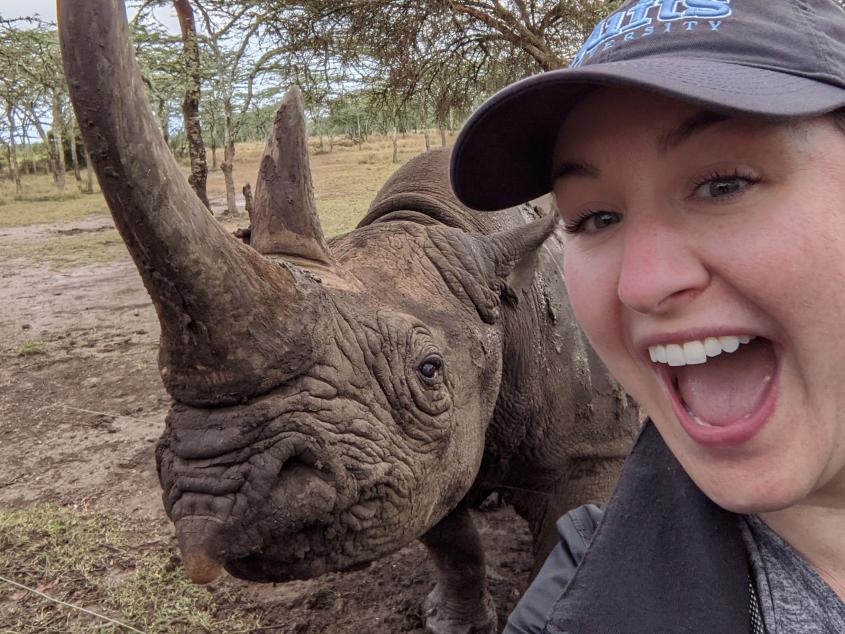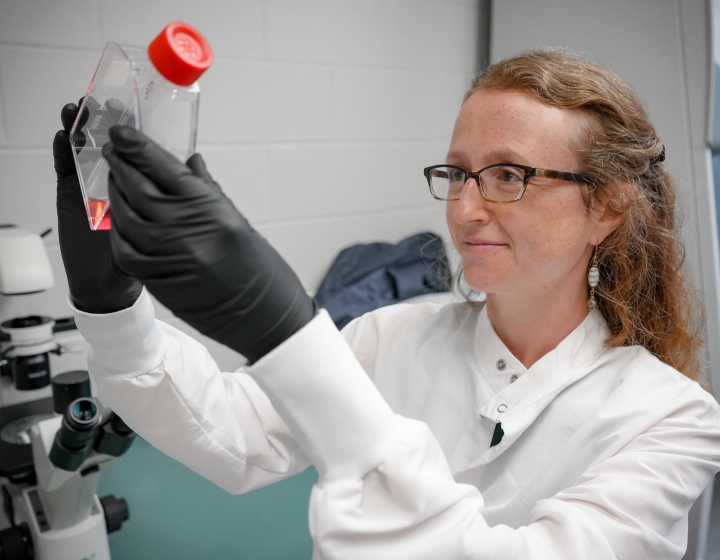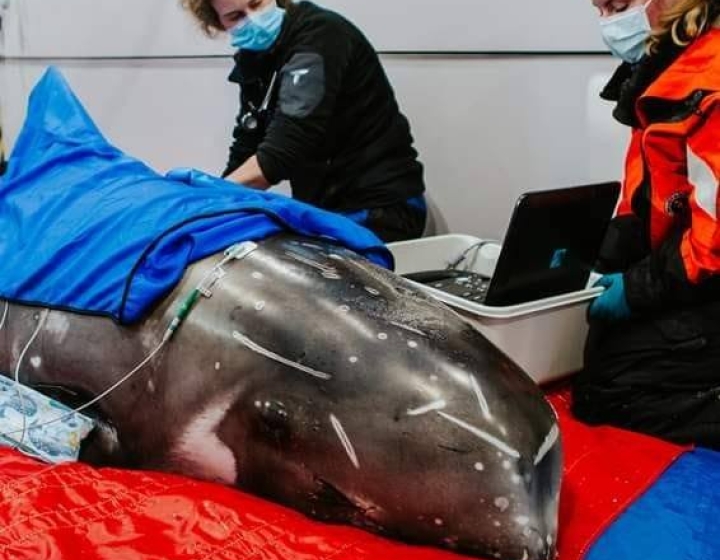BBS student Q&A: Danielle Sosnicki
Danielle Sosnicki
Ph.D. Candidate, Travis Lab
Q: What is your area of research, and why is it important?
I study mechanisms that are involved in the maturation and function of sperm. It's amazing that we still don't fully understand everything that contributes to how sperm work when they are literally one of only two types of cells (oocytes, or eggs, are the other) that are primarily responsible for life persisting from one generation to the next in many species! More specifically, I study a lipid that we know helps to control sperm fertilizing ability by regulating calcium channels, but I am investigating its role in the epididymis. In this organ, sperm undergo an essential maturational process that enables them to swim, recognize the egg, and fertilize. However, we have a very limited understanding of the mechanisms that are involved in this crucial process. I'm hoping that my work can help decipher part of it.
Studying the basic science of how sperm function is important because the more information we have, the more we can intervene-either when things aren't working properly, such as developing new treatments for infertility, or when they are working perfectly and we want to stop them, such as developing new contraceptives. My concentration is Zoology and Wildlife Conservation so I hope that my findings can help contribute to the conservation of wild and endangered species by improving how we handle sperm used for assisted reproductive technologies, or by finding new non-hormonal contraceptive targets that can be used to control animal populations.
Q: What initiatives are you are involved within the BBS Program?
I served in two different roles on the board of the BBS Graduate Student Society (BBS GSS) which is a student group that represents all students in the BBS program and advocates for changes that can benefit us all. GSS also helps build a sense of community by hosting social events throughout each semester. I started as the Coordinator for the Peer Mentor Program which matches all incoming BBS students with a current student and aims to help new students transition into the program by offering peer support even before they arrive in Ithaca. In this role I helped plan and host several events each semester for the first-year mentees and their BBS student mentors. Next, I served as GSS president and helped to oversee the GSS and our newly formed BBS Diversity and Inclusion (D&I) Council. During that year our in-person events were very limited because of the pandemic so we focused a lot of our efforts on interactive virtual events that had diversity and inclusion themes. We held movie nights where we watched things such as "Picture a Scientist", D&I journal clubs to discuss papers about the beneficial impact that diversity can have on science, and even "stupid question nights" where students could submit anonymous questions about anything they wanted answers to that they may have been uncomfortable asking in other settings.
I am a student in the Zoology and Wildlife Conservation (ZWC) concentration and a trainee in the Joint Graduate Training Program (JGTP) with the Smithsonian Conservation Biology Institute, and while there are only a few of us in this concentration I try to make sure that we also have a sense of community. During the initial COVID-19 shutdown we started a virtual ZWC Journal Club which I have been coordinating since then. It's a nice way for us to talk about conservation and touch base to hear about what everyone is working on. Also, since students in the JGTP split their time between Cornell and Smithsonian, it's been a great way to stay in touch even when some of us are hundreds of miles away studying at the Smithsonian.
Q: What are your hobbies outside of your academic work?
Ithaca has a lot of beautiful nature so I try to take advantage of that when I can. When the weather is nice, I like to take my dog, Spencer, hiking or to one of the parks around Cayuga Lake. I also quickly got obsessed with birding once I started exploring Sapsucker Woods near the Lab of Ornithology. I am very much an introvert, but I've been trying to use my hobbies (which are usually done alone) to make new friends and I've learned you can find a group that is interested in almost anything in Ithaca! I joined a knitting and crochet club, I go to the weekend "beginner bird walks" hosted by the local bird club, and just last month I joined a "virtual geeky book club"!
Q: What advice would you give an entering Ph.D. student?
I would encourage new PhD students to prioritize sleep and self-care. Ph.D. programs are stressful, even if you join a lab that is a great fit for you! It is very easy to get burnt out so it's important to take care of yourself. Figure out which things work best for you to manage your stress and then do them as much as you can! These can look different for everyone but can include having a pet, being out in nature, meditating, exercising, seeking out mental health services, spending time with friends and family, traveling, etc. I would also encourage new BBS students to get involved in BBS GSS or the D&I Council, it is a great way to make new friends in the BBS program and to make sure the events are meeting the needs of current students.
Q: Anything else to share?
It has been such an honor to be part of this wonderful BBS community! From the very beginning it has been clear that the administration and faculty are very supportive and really want me to succeed. My PI, Dr. Alex Travis, and the other members of the Travis Lab have also given me an incredibly supportive environment to learn and thrive in. And finally, I'm very thankful for my friends in my BBS cohort that have been such a fun and encouraging group to go through this grad school experience with!





